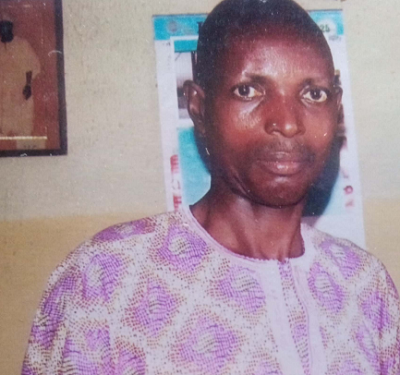
What was published as his medical report only tells a part of the story:
Re: Akinyemi Solomon/Male/63 yrs/Hosp. No 362463: “This is to certify that the above-named is a known patient of the urology department with the Diagnosis Recto-vesical fistula who has been on Colostomy for 3 (three) years. He is being prepared for Het sical fistula (rectovesical?) repair and return of colostomy: He is however not financially stable for this procedure. Series of investigations precede this diagnosis.”
The report acknowledges that 63-year-old Mr. Akinyemi Solomon is a patient of the Lagos State University Teaching Hospital (LASUTH) who has been having issues passing out stool in the last three years and now requires surgery to correct the anomaly. The patient needs about N1,114,000 to cover the cost.
However, one big question the report failed to answer is how Mr Akinyemi got to this sorry pass.
For us, this is the most germane issue, except the story is not as the patient narrated. According to Akinyemi, he went to Gbagada General Hospital in Lagos in search of a cure for prostatectomy (prostate surgery) on April 26, 2016. Unfortunately, things went awry at the hospital, necessitating his visit to the better equipped LASUTH where a second surgery was performed on him in June 2017. This resulted in his passing stool through his side. Still, a third surgery followed in February, last year, during which he was on admission for about three weeks. Yet, not much progress was made as, this time, he started passing urine through his anus. Akinyemi said he was told to prepare for a fourth surgery. The snag now, however, is that he is exhausted financially. He cannot raise the N1.11million needed for the purpose. His wife, Adenike, paints the distraught financial situation of the family: “We have exhausted all our savings, sold all properties and now have no more money to spend. Besides, our children are not yet working.”
This is a pathetic story indeed. Yet, it needs not be so in a country where things work. The patient appears a victim of circumstance because he could not have opted for his present predicament if he had his way. His choice of Gbagada General Hospital was carefully considered, according to him, because of its reputation, especially being a government hospital.
Doctors are supposed to be caring and do their job with utmost dedication. Still, as human beings, they are also prone to making mistakes, even in the best of climes with the wherewithal to do their job. When this happens, they are supposed to show empathy, especially when there is a second chance to correct their error as in Akinyemi’s case, which has even a fourth attempt at correcting the anomaly.
But we cannot see the show of empathy from the story told by the patient. It appears he has been shouldering the responsibility all alone with his distraught family. His inability to continue informed his decision to cry out to the Lagos State government and public-spirited Nigerians for help.
But, beyond helping him to raise the money for treatment, the state government should look into the matter in the public interest. That the situation which led to this unfortunate incident allegedly happened in the state government’s hospitals should make the government keen on finding out what really happened. Is Akinyemi’s story a true reflection of what happened? Moreover, in a major operation such as the one performed on the patient, supervision by experts is key. Were there any consultants on hand during the surgeries? How could a single patient be wheeled in and out of theatres three times over the same matter, with each experience compounding his woes?
We know things are no longer the same in many hospitals in the country, but we do not want to believe it is as bad as in Akinyemi’s case. The requisite professional body should also be interested in this matter. Only an inquiry would do in this matter which looks more like fiction. If the story is as narrated by Mr Akinyemi, then he deserves all the attention necessary so that blames can be apportioned, sanctions dished out appropriately and the patient assisted to get over his predicament.
END

Be the first to comment